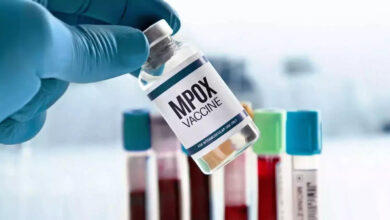Prioritising Wellbeing of Mothers: Understanding & Addressing Mental Health Challenges in Mothers

Most of the women on this planet go through motherhood. While it can be a thrilling experience for up to 20% of new mothers, the struggles they face due to invisible issues like mental health problems may overshadow this. These illnesses, frequently undiagnosed or left untreated, usually impact the mothers, and this spreads to their families and babies, affecting their well-being.
By realising what the significant issues, symptoms, and available cures for maternal mental health issues are, we can empower women, and then by that, we can create a healthier society for families all around.
The cascade of untreated postnatal mental health conditions rounds the wheel of family distress.
Mental health is a constituent part of overall health and is no exception while pregnant or after delivery. The outcome of abusing one’s mental health during this period can be devastating. Research reveals that if conditions like depression and anxiety remain long without treatment, they can create more stress that can result in complications during pregnancy, such as missed prenatal care. Besides that, diseases in the pregnancy period can have significant effects on newborns, such as premature birth, low birth weight, or a delay in development.
In addition, the potential threat to mental health is even more worrying. The trunk of these conditions failing to get treated can disturb a mother’s ability to bond with her newborn and manage daily chores. In an extreme case, they can further create a higher maternal mortality rate.
It is a common phenomenon that many mothers-to-be suffer from the “baby blues” due to extreme mood swings, including fatigue, irritation, and low energy levels. This usually happens in the first few hours after birth, and the easy process often ends in a couple of days. On the contrary, the variant of depression pregnancy appears to be a completely different picture.
Symptoms survivors of postpartum depression, their effects become more intense and may continue to linger for weeks or even months. They encompass long-lasting sadness, denial, detachedness from what gives pleasure and satisfaction, the inability to sleep well, and withdrawal from social activities. Most of the time, that means that even self-hurt or injury to the newborn can be imagined.
To accurately differentiate between baby blues and postpartum depression, it is crucial. If you or someone you know has been feeling discomfort for a prolonged period, and if these feelings prevent you from undertaking simple and daily routine activities, try to see your psychologist.
Even though postpartum depression is the most typical mental health condition in mothers during this period, it’s not only a health concern. The most pressing psychiatric disorder that often occurs in mothers after childbirth is postpartum anxiety, which involves irrational concerns and fears. Also, OCD and substance use disorders can become apparent or aggravated at this time after birth. Students have no idea how difficult research can be, and neither do they realise what makes good research, for example, covering all aspects of the topic, exposing and taking into account multiple points of view, and properly citing the sources.
This type of extreme is postpartum psychosis, which is a critical yet scarce condition. Females who have psychosis can have abnormal mannerisms that include flashbacks, visions, and delusions. It can be life-threatening; hence, seek immediate medical care to see that all mothers and toddlers are in good health.
The good news is the fact that various treatments demonstrate effectiveness in alleviating the cases of maternal mental health. One type of therapy that is available to women is psychotherapy or what is generally called talk therapy, where women share their concerns with a mental health care provider when it comes to utilising Cognitive Behavioral Therapy (CBT) tends to be a particularly potent kind of therapy for providing people with the skills of managing their emotions.
Prescriptions also become an essential part of recovery. Healthcare providers could be given medications such as antidepressant drugs or anti-anxiety pills based on the nature of a particular diagnosis. In addition, the FDA approved two drugs just last month that are designed for postpartum depression, which gives a bite to the options for some women.
Remember that looking for support is not a sign of your weakness but a demonstration of your courage. We should effectively enable people to treat their mental health fluxes as quickly as they treat physical ailments. We can now achieve this if we approach mental health with the same openness and acceptance.




